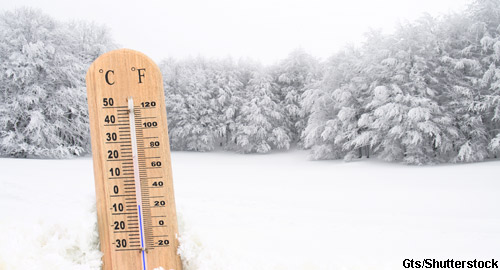 Novel research has linked cold environments—with snow, ice and overall frigid conditions—to an increased risk of developing rheumatoid arthritis (RA) and has rheumatologists in some regions eager for more research. The Swedish study, which was recently published in RMD Open in 2017 and presented as a poster session at the 2016 ACR/ARHP Annual Meeting, concludes that working in cold environments “is associated with increased risk of developing both anti-citrullinated protein antibody (ACPA)-positive and ACPA-negative RA. A dose-response relationship was found between working in cold indoor environment and the risk of developing RA. Moderate additive interaction was observed between exposure to cold environments and exposure to repetitive hand/finger movements.”1,2
Novel research has linked cold environments—with snow, ice and overall frigid conditions—to an increased risk of developing rheumatoid arthritis (RA) and has rheumatologists in some regions eager for more research. The Swedish study, which was recently published in RMD Open in 2017 and presented as a poster session at the 2016 ACR/ARHP Annual Meeting, concludes that working in cold environments “is associated with increased risk of developing both anti-citrullinated protein antibody (ACPA)-positive and ACPA-negative RA. A dose-response relationship was found between working in cold indoor environment and the risk of developing RA. Moderate additive interaction was observed between exposure to cold environments and exposure to repetitive hand/finger movements.”1,2
In an email interview with The Rheumatologist, lead author Pingling Zeng of the Institute of Environmental Medicine at the Karolinska Institute in Sweden says the study was partly prompted by repeated questions from RA patients who would comment on whether cold plays a role in RA. Although some research investigates the association between weather and climate conditions, including temperature and barometric pressure, and RA symptoms, Dr. Zeng describes her team’s research as “the first study that investigated the association between working in cold environments and developing RA.”
The Need for More Research
Dr. Zeng writes, “There is a vast amount of research on RA focusing on the cellular or molecular level to understand the disease pathogenesis. In contrast, relatively [little] research on RA [is] focused on the modifiable environmental risk factors. Providing new knowledge on the environmental risk factors would address patients’ needs and desire to understand why they get the disease and how to prevent their family members from suffering from the same disease. Thus, more research on the modifiable environmental risk factors is needed.”
She adds, “We hope our study will serve as a foundation for scientists to generate relevant etiologic hypotheses and to test these hypotheses using laboratory experiments or interventional studies to better understand the cellular mechanisms of RA.”
Asha Shrestha, MD, a rheumatologist at St. Joseph Healthcare in Bangor, Maine, says more research into the association of the environment and RA development is much needed. “It’s absolutely important, yes,” she says. “I’d encourage those studies.”
Most of Dr. Shrestha’s patients who have arthritis complain of aggravated joint symptoms during the region’s wintry months. She encourages patients to stay warm and try to stay active during the cold weather. However, their outdoor activity level is often limited due to inclement weather and increased risk of falls.

